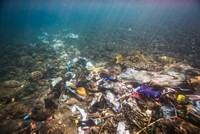Advertisement
Grab your lab coat. Let's get started
Welcome!
Welcome!
Create an account below to get 6 C&EN articles per month, receive newsletters and more - all free.
It seems this is your first time logging in online. Please enter the following information to continue.
As an ACS member you automatically get access to this site. All we need is few more details to create your reading experience.
Not you? Sign in with a different account.
Not you? Sign in with a different account.
ERROR 1
ERROR 1
ERROR 2
ERROR 2
ERROR 2
ERROR 2
ERROR 2
Password and Confirm password must match.
If you have an ACS member number, please enter it here so we can link this account to your membership. (optional)
ERROR 2
ACS values your privacy. By submitting your information, you are gaining access to C&EN and subscribing to our weekly newsletter. We use the information you provide to make your reading experience better, and we will never sell your data to third party members.
Pollution
Chinese authorities seek to phase out single-use plastics
New rules are expected to have a limited impact on the chemical industry and the environment
by Hepeng Jia, special to C&EN
January 23, 2020
| A version of this story appeared in
Volume 98, Issue 4

China plans new regulations to phase out many single-use plastics after a decade of booming use in online shopping and food delivery. While the new rules may have some impact on the chemical industry, experts warn that their environmental benefits may be limited without detailed measures for implementation.
Two powerful Chinese agencies—the National Development and Reform Commission and the Ministry of Ecology and Environment—jointly released guidelines on Jan. 19 forbidding the production and sale of ultrathin plastic bags and disposable foam plastic tableware by the end of 2020.
By the end of the year, nondegradable plastic bags will also be banned in major shopping centers in key cities. The ban will be expanded to farmers’ markets in key cities and shopping centers in smaller cities in 2022 and to the nation in 2025.
The express-delivery industry, a major source of plastic waste in recent years, will be prohibited from using disposable plastic bags and woven bags by the end of 2022 in key cities such as Beijing and Shanghai and in more economically advanced provinces like Guangdong, Fujian, Zhejiang, and Jiangsu.
“This will certainly impact plastic consumption and, going forward, the petrochemical industry,” says William Liu, senior consultant at the consulting firm Wood Mackenzie. “Polyethylene consumption will be impacted, as it is the main feed to produce bags and packaging films. But as plastic bags and straws are only one application of plastic, it will not have a major impact on the oil industry.”
Zhang Boju, head of Friends of Nature, a leading Chinese environmental group, lauds the new rules as progress beyond a 2008 restriction on plastic bag use but warns that enforcing them will be a challenge. Many small factories produce plastic bags, and thousands of farmers’ markets use them.
Zhang argues that policy makers should focus on excessive packaging in general rather than on a specific type of packaging. “If all plastics bags and packaging are replaced with paper, do we have enough trees to bear the change?” he asks.





Join the conversation
Contact the reporter
Submit a Letter to the Editor for publication
Engage with us on Twitter